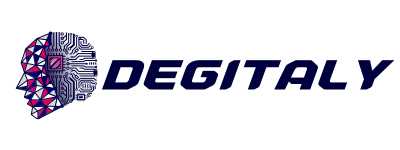In today’s fast-paced digital world, you’ve likely heard the term “digital skills” thrown around more times than you can count. But what exactly are these elusive abilities, and why does everyone seem to be talking about them? Let’s dive into the world of digital skills and uncover why they’re not just buzzwords, but essential tools for navigating our increasingly connected universe.
The Evolution of Digital Skills
Cast your mind back to the early days of computers. Remember when simply knowing how to turn on a PC and safely eject a floppy disk was considered cutting-edge? Those were the digital skills of yesteryear, and boy, have we come a long way since then!
Digital skills have been part of the workplace landscape for decades now. As long as we’ve had computers, servers, and electronic communications, there’s been a need for digitally savvy professionals. But here’s the kicker: what was once the domain of a select few IT specialists has now become a must-have for nearly everyone in the workforce.
So, what’s changed? Well, everything and nothing at the same time. The fundamental concept remains the same – digital skills are all about leveraging technology to get things done. But the scope, complexity, and ubiquity of these skills have expanded exponentially.
Defining Digital Skills for the Modern Era
In essence, digital skills encompass the ability to find, evaluate, use, share, and create content using digital devices like computers and smartphones. It’s about being fluent in the language of technology, able to navigate the digital landscape with confidence and competence.
But let’s break it down further. Digital skills aren’t just about knowing how to use specific software or devices. They’re about understanding the digital ecosystem as a whole and being able to adapt to new technologies as they emerge. It’s about being a digital native, even if you weren’t born into the digital age.
Think of digital skills as a Swiss Army knife for the modern world. They’re versatile, essential, and can get you out of a tight spot in a pinch. Whether you’re crunching numbers in a spreadsheet, collaborating on a project via cloud-based tools, or analyzing data to make informed business decisions, digital skills are the backbone of modern productivity.
The Digital Revolution: No Industry Left Behind
You might be thinking, “Sure, digital skills are important for tech companies, but what about other industries?” Well, hold onto your hat, because the digital revolution is leaving no stone unturned.
Take farming, for instance. Gone are the days when a farmer’s toolkit consisted solely of a tractor and a weather almanac. Today’s agriculturalists are using sensors, drones, and sophisticated information systems to optimize crop yields, monitor soil conditions, and manage resources more efficiently. They’re not just tilling the land; they’re leveraging big data to make smarter decisions about when to plant, harvest, and irrigate.
Or consider the restaurant industry. The advent of food delivery apps has transformed the way eateries operate. Restaurateurs now need to manage digital orders, navigate online reviews, and maintain a robust social media presence. The ability to handle these digital tasks can make or break a business in today’s competitive landscape.
Even traditionally face-to-face industries like real estate have gone digital. Virtual property tours, e-signature platforms for contracts, and sophisticated customer relationship management (CRM) systems have become standard tools of the trade. Realtors who can’t navigate these digital waters risk being left high and dry in an increasingly tech-savvy market.
The Covid-19 Catalyst: Accelerating Digital Adoption
If there was ever a doubt about the importance of digital skills, the COVID-19 pandemic put it to rest. The mass shift to online business operations in recent years didn’t just accelerate the need for digital literacy – it catapulted it into the stratosphere.
Suddenly, businesses that had been dragging their feet on digital transformation found themselves in a sink-or-swim situation. Those with digitally literate workforces were able to pivot quickly, transitioning to remote work and online service delivery with relative ease. Others struggled to keep up, highlighting the critical importance of digital skills in ensuring business resilience and adaptability.
This seismic shift didn’t just affect how we work; it changed how we live, learn, and interact. From virtual classrooms to telehealth appointments, digital skills became not just professional assets but essential life skills.
The Digital Skills Gap: A Growing Concern
Here’s a sobering statistic: according to recent studies, 24% of employers think finding employees with the right skill set will remain their biggest challenge over the next five years. And guess what’s at the top of that “right skill set” list? You got it – digital skills.
The digital skills gap is a growing concern across industries. As technology continues to evolve at breakneck speed, many workers find their skills becoming obsolete almost as quickly as they acquire them. It’s estimated that 50% of all employees will need reskilling in the next five years just to keep pace with technological advancements.
This gap isn’t just a problem for employees; it’s a significant hurdle for businesses trying to innovate and remain competitive. Without a workforce equipped with the necessary digital skills, companies struggle to implement new technologies, streamline processes, and stay ahead of the curve.
But here’s the silver lining: this skills gap represents an opportunity. For employees willing to invest in their digital literacy, it’s a chance to future-proof their careers and open doors to new opportunities. For businesses, it’s an opportunity to invest in their workforce, fostering loyalty and driving innovation from within.
The Digital Skills Spectrum: From Basic to Advanced
When we talk about digital skills, we’re not just referring to a single ability or set of abilities. Instead, think of digital skills as a spectrum, ranging from basic competencies that every professional should have to advanced specializations that can set you apart in your field.
At the basic end of the spectrum, we have what we might call “digital literacy” – the fundamental skills needed to function in a digital workplace. These include:
- Communicating effectively via email and other digital platforms
- Conducting online research and evaluating the credibility of information
- Using cloud-based collaboration tools like Google Drive or Microsoft Teams
- Creating and managing basic spreadsheets and documents
- Practicing good digital citizenship and understanding online privacy and security
These skills form the foundation of digital competence. They’re the bare minimum that most employers expect from their workforce, regardless of role or industry.
Moving along the spectrum, we encounter more specialized digital skills. These might include:
- Social media management and digital marketing
- Data analysis and visualization
- Basic coding and web development
- User experience (UX) and user interface (UI) design
- E-commerce and digital sales techniques
These intermediate skills are increasingly in demand across various sectors. They allow professionals to contribute more directly to an organization’s digital strategies and initiatives.
At the far end of the spectrum, we find advanced digital skills. These are highly specialized abilities that often require significant training and experience:
- Artificial intelligence and machine learning
- Cybersecurity and ethical hacking
- Blockchain technology
- Advanced data science and big data analytics
- Internet of Things (IoT) development
While not everyone needs to master these advanced skills, having a basic understanding of these technologies and their potential applications can be valuable in many roles.
The key takeaway? Digital skills aren’t a one-size-fits-all proposition. The digital skills you need will depend on your career path, industry, and personal goals. But one thing’s for certain: no matter where you are in your career, there’s always room to grow your digital skill set.
Why Digital Skills Matter: The Benefits of Digital Literacy
Now that we’ve explored what digital skills are, let’s talk about why they matter. The benefits of digital literacy extend far beyond just being able to use the latest gadgets or software. They can fundamentally transform your career prospects and your ability to navigate the modern world.
- Career Advancement and Job Security
In today’s job market, digital skills are no longer a nice-to-have – they’re a must-have. According to a study on digital skills for career progress, the number of jobs requiring digital skills is predicted to increase by 12% by 2024. That’s a significant jump, and it underscores the growing importance of digital literacy in the workforce.
But it’s not just about getting a job; it’s about keeping it and advancing in your career. As automation and AI continue to reshape the job market, roles that don’t require digital skills are becoming increasingly scarce. By developing your digital competencies, you’re not just making yourself more employable – you’re future-proofing your career.
- Increased Productivity and Efficiency
Digital skills can dramatically boost your productivity and efficiency at work. Whether it’s using project management software to streamline workflows, leveraging data analytics to make informed decisions, or using automation tools to handle repetitive tasks, digital skills allow you to work smarter, not harder.
- Enhanced Problem-Solving Abilities
The digital world is all about problem-solving. When you develop digital skills, you’re not just learning how to use specific tools or platforms – you’re training your brain to think logically, approach problems systematically, and find creative solutions. These problem-solving abilities are transferable across various aspects of your professional and personal life.
- Improved Communication and Collaboration
In our increasingly connected world, the ability to communicate and collaborate effectively in digital spaces is crucial. Digital skills enable you to leverage a wide range of communication tools and platforms, from video conferencing software to collaborative document editing tools. This can lead to more effective teamwork, better relationships with clients and colleagues, and a more connected, engaged workforce.
- Greater Innovation Potential
Innovation is the lifeblood of progress, and digital skills are the fuel that powers it. When you understand the digital landscape, you’re better positioned to identify opportunities for improvement and innovation. Whether it’s developing a new app to solve a common problem or using data analytics to uncover new business opportunities, digital skills empower you to be a driving force for innovation in your organization.
- Personal Empowerment and Lifelong Learning
Last but certainly not least, digital skills empower you to take control of your own learning and development. The internet is a vast repository of knowledge, and with the right digital skills, you can tap into this wealth of information to continue learning and growing throughout your life. Whether you’re taking an online course, participating in webinars, or simply staying informed about the latest developments in your field, digital skills open up a world of lifelong learning opportunities.
The Path to Digital Proficiency: How to Develop Your Digital Skills
So, you’re convinced of the importance of digital skills. The next question is: how do you go about developing them? The good news is that there are more pathways to digital proficiency than ever before. Here are some strategies to consider:
- Self-Directed Learning
One of the beautiful ironies of the digital age is that you can use technology to learn about technology. The internet is brimming with resources for self-directed learners. From YouTube tutorials to online coding platforms, there’s no shortage of materials to help you develop your digital skills.
Start by identifying the skills you want to develop. Then, seek out online resources that can help you learn. Websites like Coursera, edX, and Khan Academy offer a wide range of free or low-cost courses on various digital topics. For more technical skills, platforms like Codecademy or freeCodeCamp can help you learn coding languages.
Remember, consistency is key in self-directed learning. Set aside regular time for learning, even if it’s just 30 minutes a day. Over time, these small efforts can lead to significant skill development.
- On-the-Job Learning
Many digital skills are best learned through hands-on experience. If you’re currently employed, look for opportunities to develop your digital skills on the job. This might involve volunteering for projects that require digital competencies you want to develop, or simply asking to shadow colleagues who have the skills you’re interested in learning.
Don’t be afraid to step out of your comfort zone. If your company is implementing a new digital tool or platform, be one of the first to volunteer to learn it. Not only will you develop valuable skills, but you’ll also position yourself as a go-to resource for your colleagues.
- Formal Education and Certification Programs
For those looking for a more structured learning experience, formal education and certification programs can be excellent options. Many universities now offer digital skills courses, both online and in-person. These can range from short certificate programs to full degree courses in areas like digital marketing, data science, or cybersecurity.
Professional certifications can also be valuable, especially in technical fields. Certifications from organizations like Google, Microsoft, or Cisco can validate your skills and make you more attractive to potential employers.
- Bootcamps and Intensive Programs
If you’re looking to develop digital skills quickly, bootcamps and intensive programs can be an effective option. These programs, which typically last anywhere from a few weeks to a few months, offer immersive, hands-on training in specific digital skills.
For example, coding bootcamps have become increasingly popular for those looking to transition into software development careers. Similarly, data science bootcamps can help you quickly develop skills in areas like data analysis, machine learning, and data visualization.
- Networking and Community Involvement
Don’t underestimate the power of community when it comes to developing digital skills. Joining professional networks, attending industry events, and participating in online forums can expose you to new ideas and technologies, and provide opportunities for learning from peers.
Platforms like LinkedIn groups or GitHub communities can be great places to connect with others in your field, ask questions, and stay up-to-date with the latest trends and technologies.
- Practice, Practice, Practice
Finally, remember that developing digital skills is not just about acquiring knowledge – it’s about putting that knowledge into practice. Look for ways to apply your new skills in real-world contexts. This might involve taking on side projects, contributing to open-source initiatives, or even starting your own digital ventures.
The more you use your digital skills, the more proficient you’ll become. And as you build your portfolio of digital projects and experiences, you’ll have tangible evidence of your skills to show potential employers or clients.
The Future of Digital Skills: Staying Ahead of the Curve
As we look to the future, one thing is certain: the importance of digital skills will only continue to grow. But what does this future look like, and how can you stay ahead of the curve?
Emerging Technologies and Skills
The digital landscape is constantly evolving, with new technologies emerging at a rapid pace. Some areas to watch include:
- Artificial Intelligence and Machine Learning: As AI becomes more prevalent, skills in areas like natural language processing, computer vision, and predictive analytics will be increasingly valuable.
- Internet of Things (IoT): With more devices becoming connected, understanding how to work with IoT technologies will be crucial in many industries.
- Blockchain: While often associated with cryptocurrencies, blockchain technology has potential applications in many areas, from supply chain management to healthcare.
- Extended Reality (XR): This includes virtual reality (VR), augmented reality (AR), and mixed reality (MR). As these technologies mature, skills in XR development and design will be in high demand.
- Quantum Computing: While still in its early stages, quantum computing has the potential to revolutionize fields like cryptography, drug discovery, and financial modeling.
The key to staying ahead is to cultivate a mindset of continuous learning. Keep an eye on emerging trends in your industry and be proactive about developing skills in areas that interest you and align with your career goals.
The Human Element: Soft Skills in a Digital World
As we become increasingly reliant on technology, it’s important to remember that digital skills don’t exist in a vacuum. They need to be complemented by strong soft skills – the human elements that technology can’t replicate.
Skills like critical thinking, creativity, emotional intelligence, and adaptability will be crucial in navigating the digital future. The ability to communicate complex technical concepts to non-technical stakeholders, to collaborate effectively in virtual teams, and to think critically about the ethical implications of new technologies will set apart the most successful digital professionals.
Digital Ethics and Responsibility
As our world becomes more digitally integrated, questions of digital ethics and responsibility are coming to the forefront. Understanding issues like data privacy, algorithmic bias, and the societal impacts of technology will be increasingly important.
Developing a strong ethical framework for working with digital technologies will be crucial. This includes understanding how to protect user privacy, ensure fairness and transparency in AI systems, and consider the broader societal impacts of the technologies we develop and use.
The Global Digital Landscape
Finally, it’s important to remember that the digital revolution is a global phenomenon. As remote work becomes more common and businesses increasingly operate on a global scale, the ability to navigate different digital cultures and work effectively in diverse, distributed teams will be invaluable.
Consider developing cross-cultural communication skills and familiarizing yourself with digital trends and regulations in different parts of the world. This global perspective can open up new opportunities and help you thrive in an increasingly interconnected digital ecosystem.
Conclusion: Embracing the Digital Future
As we’ve explored throughout this article, digital skills are no longer optional – they’re essential for thriving in the modern world. From basic digital literacy to advanced technical competencies, these skills touch every aspect of our personal and professional lives.
But here’s the most important thing to remember: developing digital skills is not a one-time task, but a lifelong journey. The digital landscape will continue to evolve, and with it, the skills needed to navigate it successfully. By cultivating a mindset of continuous learning and staying curious about new technologies and their applications, you can ensure that you remain relevant and valuable in an increasingly digital world.
So, what’s your next step on this digital journey? Will you take an online course to boost your data analysis skills? Start a coding project to learn a new programming language? Or perhaps dive into the world of digital marketing? Whatever you choose, remember that every step you take to enhance your digital skills is an investment in your future.
The digital revolution is here, and it’s transforming the way we work, learn, and live. By embracing digital skills and committing to ongoing learning and development, you’re not just preparing for the future – you’re actively shaping it. So go ahead, take that first step. Your digital future awaits!




